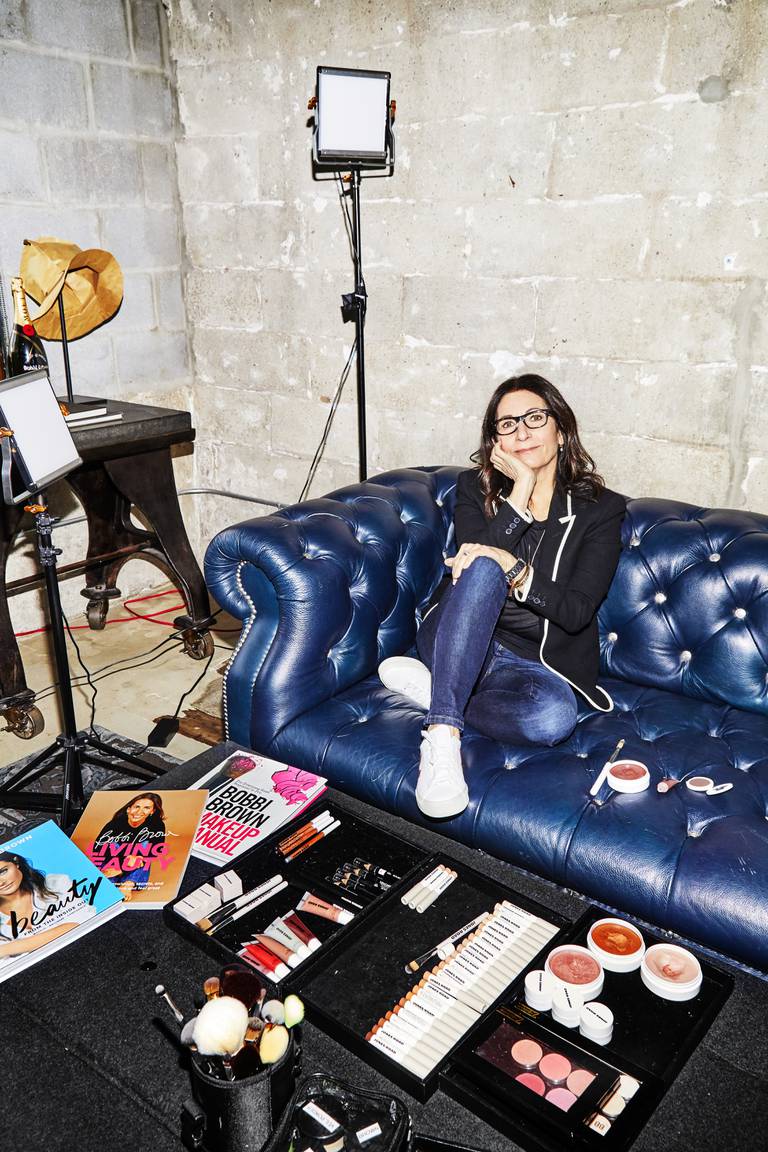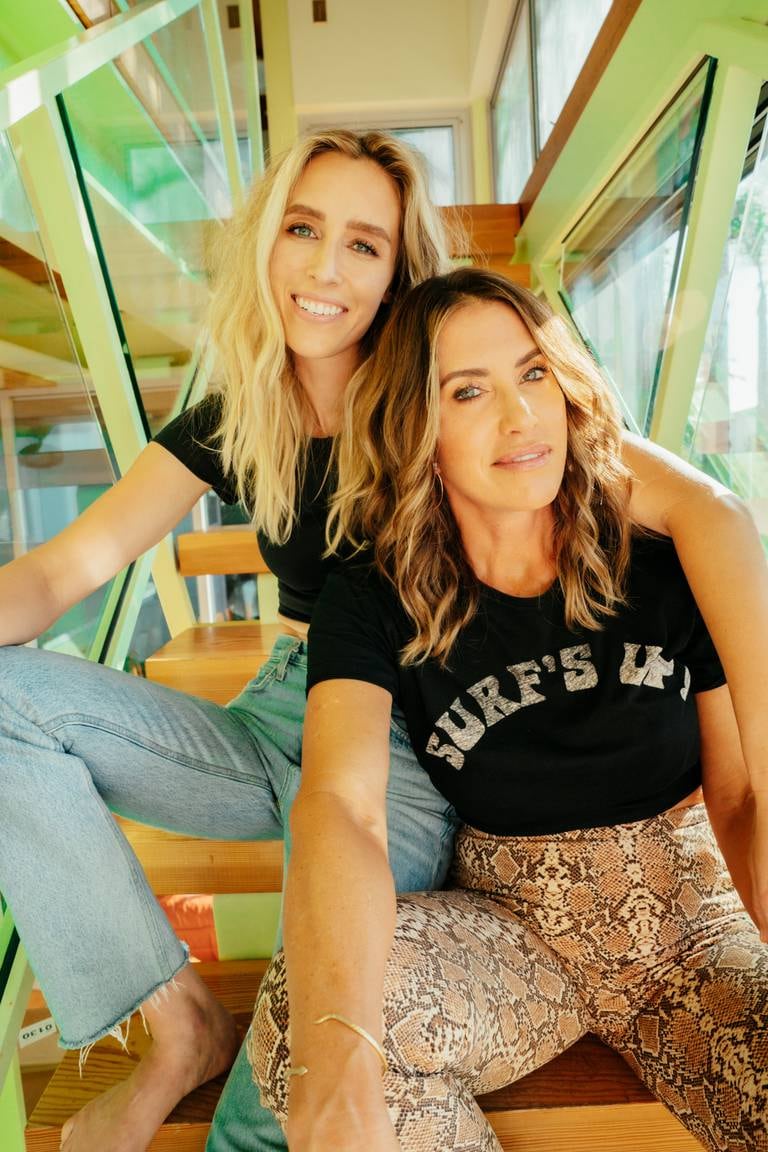
Wende Zomnir launched Urban Decay in 1996, a makeup brand featuring gritty colour names like Roach and Smog. Now, 25 years and a L’Oréal acquisition later, Zomnir is taking a sunnier approach at her next venture, Caliray, a pastel rainbow-adorned, California-inspired concept.
The brand, which she co-founded with Jenna Dover, launches this month. Zomnir still technically works with Urban Decay and L’Oréal: she has a non-compete, but L’Oréal executives were “encouraging” of her plans and made an exception. Zomnir could have taken her proceeds from selling Urban Decay and sat back, but she wasn’t ready to do that.
“I found my niche in creating beauty products and packaging and telling a whole story with a product,” she said. “That is my canvas. And I’m good at it.”
Zomnir’s not alone. In recent years, several legacy founders, including Jo Malone, Fresh’s Lev Glazman and Alina Roytberg and Nyx’s Toni Ko, among others, have all debuted new brands, years after selling their first labels in lucrative deals. The entrepreneurial and creative pull of the beauty industry, they found, was too much to resist. But to get to this point, they’ve had waited out restrictive non-compete agreements and dealt with boredom or frustration as employees of the brands they no longer owned.
But it remains to be seen if someone like Bobbi Brown can be the next, well, Bobbi Brown. Today’s beauty market environment is different from the one in which these founders initially found success, said Maria Steingoltz, a managing director with a focus on beauty and consumer products at LEK Consulting. Now, brands fronted by celebrities and influencers reign supreme, and buzz is built on platforms like TikTok, where users may not know who these founders are.
“There’s brand proliferation, channel proliferation, and the rise and importance of e-commerce,” said Steingoltz. “It’s also really difficult to gain scale because there’s so much noise out there and it’s becoming much more costly to invest in building your social presence.”
In other words, no one can rest on their laurels.
Why They Want to Do It Again
An exit with a hefty payday may seem like the ultimate goal for founders, but Jo Malone, who founded her eponymous fragrance brand in 1990 and sold it to Estée Lauder in 1999, said that the truth is more complex.
“Often with entrepreneurs, money is not the fuel that fuels them for the future,” said Malone, who debuted her second brand, Jo Loves, a self-funded fragrance label, in 2011. “It doesn’t make them happy. What makes them happy is doing the thing that made the money in the first place.”
Malone stayed with the brand until 2006 and expresses some regret for leaving. After her departure, she was restricted by a five-year non-compete, standard protocol in the industry, but one that can lead to a sense of aimlessness for a successful entrepreneur. Toni Ko, who launched Nyx Cosmetics in 1999 and sold it to L’Oréal in 2014, also had a five-year non-compete. After walking away from Nyx, she couldn’t do anything in the beauty industry, including investing or advising. She described that period as “pretty dark days.”
“The easiest way to describe that feeling is like a helium balloon that is fully expanded,” added Ko, who reentered beauty in 2019 with Bespoke Beauty Brands, a self-funded incubator. “Then with just one flick of a very sharp needle, suddenly there is nothing.”
Bobbi Brown, who launched her eponymous makeup brand in 1991, signed a 25-year non-compete when she sold to Estée Lauder in 1995, most of which she spent working at the brand. She left in 2016 after butting heads with the company about contouring and other trendy products, with almost five years left on her non-compete. In the interim, Brown did a stint as the top editor at Yahoo Beauty, curated a collection at Lord & Taylor, launched a supplement brand, and opened a hotel in her hometown of Montclair, N.J.
But Brown missed makeup, so she plotted a return to her signature natural makeup, funding and launching her clean beauty brand Jones Road in October of last year. A multi-use product with a soft wash of colour and sheen called the Miracle Balm has been a runaway best seller.
Building a Brand For a New Consumer
Some brands have seen early success, like Brown’s Jones Road, but non-competes may mean that founders may have been out of the game for years, and today, the stakes are different. While high-profile founders and celebrities get a lot of attention, success is not guaranteed.
“The founder story only lasts so long,” said Paula Floyd, whose company Headkount works with start-up beauty brands to help them scale at retail. “No matter who you are, no matter how many followers you have or how great your mission is, product performance trumps everything.”
As well, the TikTok generation may not know the best-known beauty founders of the ‘90s. Brown said that her name recognition has been “challenging and opportunistic at the same time.” She has been able to evolve some of her tactics can be evolved for today’s consumers. For example, she now does Instagram Lives for hundreds of viewers, similar to how she used to do demonstrations for a handful of customers at department store makeup counters.
Today’s market is also more crowded, with a proliferation of clean brands. Zomnir said she knew that in launching Caliray, it couldn’t rely on ‘clean’ status to sell the brand. Instead, she’s banking on high-performing makeup, messaging around sustainable packaging and creating almost a caricature of California culture.
“It’s about having a kooky, fun voice,” she said.
Nyx’s Ko, who has helped build labels including drag queen makeup brand Kim Chi Chic Beauty and a makeup line for fashion designer Jason Wu through Bespoke, said that niche brands for small, dedicated communities are the future of beauty.
“Consumers these days are very dedicated to brand narratives,” she said. “They’re not really interested in a brand that’s for everybody.”
Fresh co-founders Lev Glazman and Alina Roytberg built their next venture, a self-funded fragrance and candle range that doesn’t break their non-compete, with a target community in mind. The brand is an extension of The Maker, a hotel property in the idyllic upstate town of Hudson, N.Y. that they opened in 2020 while still working on Fresh as brand directors. Thanks to favourable press in national publications like The New York Times, they’ve amassed almost 50,000 social media followers and 15,000 email subscribers for their burgeoning lifestyle empire. The scents will be sold alongside items like bed sheets and decor at the hotel shop, via DTC e-commerce and in a store opening by the end of the year in New York City’s Chelsea neighbourhood.

Lessons Learned and Applied
Though the market has changed since these founders’ first go-rounds, now, they also have the benefit of experience. Glazman, for example, says while Fresh was built “incrementally,” with Maker, they knew how to define brand pillars early.
“You’re much more focused. So you’re coming out of the gate and you know exactly how to edit yourself,” he said.
Glazman did acknowledge missing LMVH’s science and regulatory resources. But missing those can come with benefits. Through Jones Road, Brown said she’s become reacquainted with how to operate without the big budgets she had at Lauder, using stock packaging and foregoing fancy extras in mailers. Operating independently means she can open retail at her own pace and doesn’t yet need to worry about wholesaling.
That’s not to say there aren’t challenges. While Zomnir has years-long relationships with retailers, she launched Caliray as a DTC operation, aware that sellers won’t be as easy to secure as they were with Urban Decay. Then, she said, legacy names were hesitant to enter stores like Sephora and Ulta, and they were eager to stock cool brands. But she’s applying lessons she’s learned from working with a multinational company, like streamlining product copy and taking a more disciplined decision-making approach.
And this time, founders know what happens after a splashy acquisition. For that reason, Zomnir is not focusing on an exit, instead choosing to prioritise “birthing this in a really authentic, genuine way that … reflects the brand values,” she said. Malone, meanwhile, said that in the years since she left Jo Malone, she realised “when your name is attached to it … you are always the parent of that company.” In part because of that, she said with Jo Loves, she wouldn’t sell her business and totally walk away.
Similarly, Brown said she’s not ready to part with Jones Road, despite investor interest and offers to buy the brand outright.
“I don’t play golf. I don’t play tennis. This is what I want to do,” she said.
Related Articles



